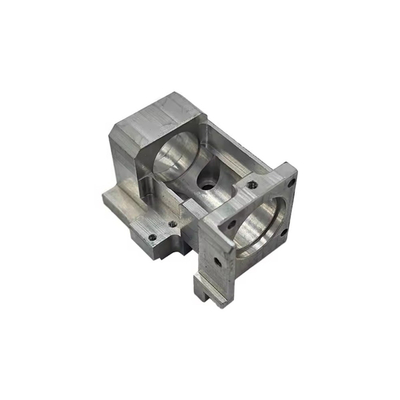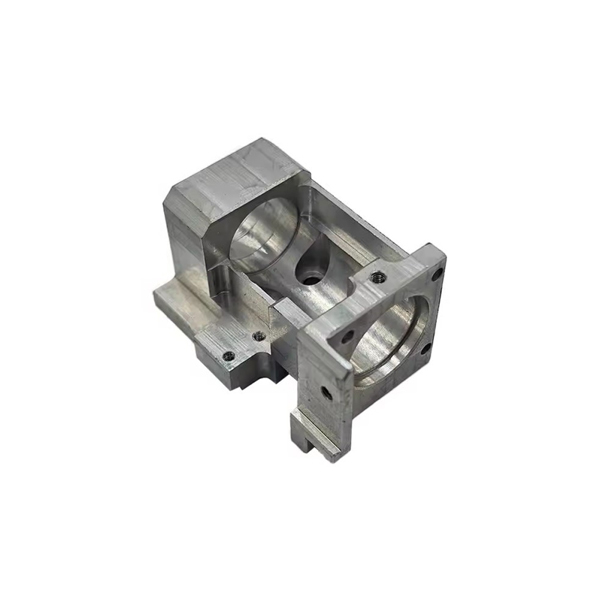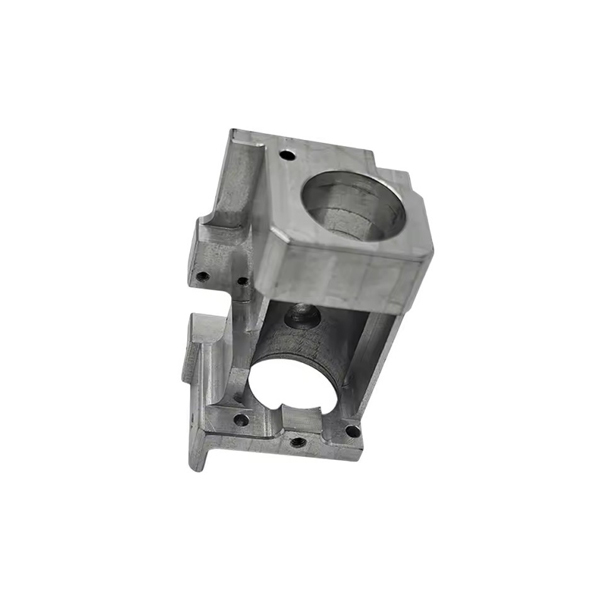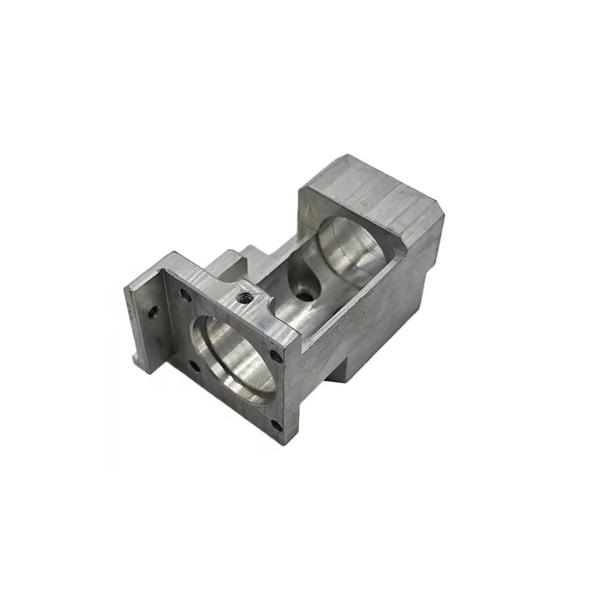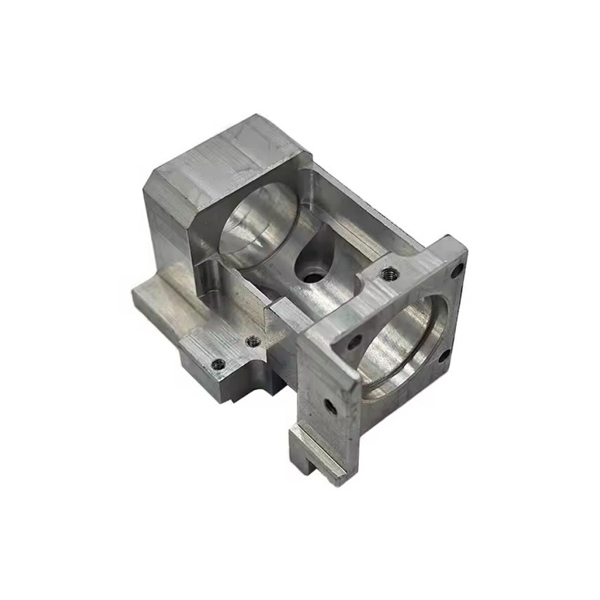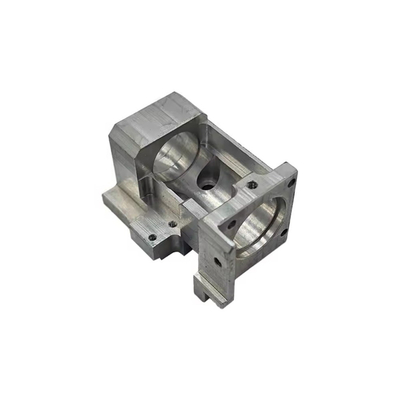
Precision Manufacturing with Custom CNC Milling Parts for Automotive and Electronics Industries
-
Cnc Machining Or NotCNC Machining
-
TypeCNC Milling
-
Material CapabilitiesCopper, Aluminum, Bronze, Stainless Steel, Brass
-
Surface TreatmentAnodized, Anodizing, Anodize/natural, Sandblast, Silk-screen
-
ServiceOEM/ODM, OEM ODM Metal Stamping, Customized OEM OEM ODM, OEM Service
-
Tolerance0.01mm, 0.05 Mm, +/-0.005, 0.003-0.05mm
-
ApplicationMachinery, Automotive, Laptop, Industrial Equipment, Engineering
-
ColorAs Per Customers' Requirement
-
Place of OriginShenzhen China
-
Brand NameXianheng
-
CertificationISO9001:2015
-
Model NumberML-CNC-070
-
Document
-
Minimum Order Quantity1 pcs
-
PriceUSD $0.1-$1.99
-
Packaging DetailsCarton, As Customers'packaging requirements
-
Delivery TimeSamples 7-10 days, Mass production 20-25 days
-
Payment TermsT/T, Western Union, MoneyGram
-
Supply Ability10000 pcs per week
Precision Manufacturing with Custom CNC Milling Parts for Automotive and Electronics Industries
![]()
Precision Manufacturing with Custom CNC Milling Parts for Automotive and Electronics Industries
Description of Precision Manufacturing with Custom CNC Milling Parts for Automotive and Electronics Industries
Precision manufacturing leverages Custom CNC (Computer Numerical Control) Milling to produce high-accuracy, complex components tailored to the stringent demands of the automotive and electronics sectors. This process combines advanced CAD/CAM software, multi-axis milling machines, and real-time quality control to achieve micron-level tolerances and consistent part quality.
Specification of Precision Manufacturing with Custom CNC Milling Parts for Automotive and Electronics Industries
| Product Name | High Quality Copper Steel Stainless Brass Material CNC Milling Parts Services |
| Material | Aluminum, Stainless Steel, Copper, Brass, Titanium, Galvinized, Nylon, ABS, POM etc. |
| Surface Treatment | Zinc Plating, Painting, Mirror Polished, Brush Polished, Powder Coating, Electroplating, Anodizing, Sandblasting etc. |
| Processing | Laser Cutting, Precision Stamping, Bending, CNC Punching, Threading, Riveting, Drilling, Welding, Painting, Assembly etc. |
| Drawing Format | 3D/CAD/DWG/IGS/STEP/PDF/JPG |
| OEM Service | Accept |
Quality Control
1. Checking the raw material after they reach our factory------- Incoming quality control ( IQC)
2. Checking the details before the production line operated
3. Have full inspection and routing inspection during mass production---In process quality control(IPQC)
4. Checking the goods after they are finished---- Final quality control(FQC)
5. Checking the goods after they are finished-----Outgoing quality control(OQC)
Application Of Precision Manufacturing with Custom CNC Milling Parts for Automotive and Electronics Industries
1. Auto Components Hardware Parts Auto Parts
2. Communication Equipment
3. Industrial Equipment
4. Medical EquipmentsMechanical Parts
5. Ship Accessories
6. Electrical Equipment
7. Mechanical Equipment
![]()
Advantages
1. Ultra-High Precision and Consistency
CNC milling eliminates human error through automated toolpaths and real-time monitoring. For automotive components like engine pistons, transmission gears, or fuel injector nozzles, even a 1-micron deviation can affect performance, fuel efficiency, or emissions. Similarly, in electronics, connector housings, heat sinks, or semiconductor fixtures require precise dimensions to ensure signal integrity and thermal management. Custom CNC milling achieves tolerances as tight as ±0.002 mm, ensuring every part meets design specifications.
2. Complex Geometry Capability
Modern 5-axis CNC milling machines can produce intricate 3D shapes that traditional methods cannot replicate. In automotive design, this enables lightweight yet strong components like lattice-structured engine blocks or optimized suspension brackets, improving fuel efficiency and durability. For electronics, CNC milling creates micro-textured surfaces for better heat dissipation or embedded cooling channels in high-power devices. This flexibility supports innovation in electric vehicle (EV) battery trays or miniaturized 5G communication components.
3. Rapid Prototyping and Small-Batch Flexibility
Both industries face fast-paced innovation cycles. Custom CNC milling allows same-day prototyping—design changes can be implemented instantly by modifying CAD files, reducing development time from weeks to hours. For low-volume production (e.g., custom automotive trim parts or niche electronics enclosures), CNC milling avoids costly tooling investments associated with injection molding. This agility helps manufacturers test markets or fulfill bespoke orders without sacrificing quality.
4. Cost Efficiency Through Material Optimization and Waste Reduction
CNC milling uses subtractive manufacturing, where material is precisely removed, minimizing waste compared to additive methods. For high-value materials like titanium alloys (used in EV battery connectors) or carbon-fiber composites (for automotive lightweighting), this reduces raw material costs. Additionally, automated processes lower labor expenses, while in-line inspection systems catch defects early, avoiding rework. In electronics, CNC milling’s precision ensures first-pass yield rates above 99% for critical components like optical lens holders, cutting production costs.
![]()
![]()
FAQ
Q: How can I customize my products ?
A: Please describe your project. Include the following information so that we can provide an accurate quote: Part Name, 3D CAD Drawing, Quantity, Material, Color, Finishing.
Q: How can I know my products going on ?
A: We will offer a detailed production schedule and send weekly reports with digital pictures and videos which show the production process.
Q: Can You sign a confidentiality greement ?
A: We can sign a confidentiality agreement according to your needs.
Q: What is your terms of payment ?
A: 30% in advance ,70% balance before shipment. Other terms negotiable.
Q: Are you a trading company or factory?
A: We are direct factory with 20 experienced engineers and more than 80 employees as well approximate 3,000 square meters workshop area.
Q: What shall we do if we do not have drawings?
A: Please send your sample to our factory,then we can copy or provide you better solutions. Please send us pictures or drafts with dimensions(Length, Height, Width), CAD or 3D file will be made for you if placed order.
